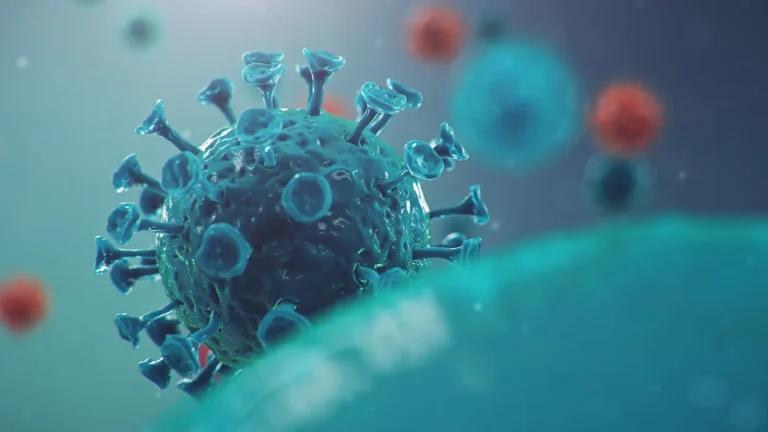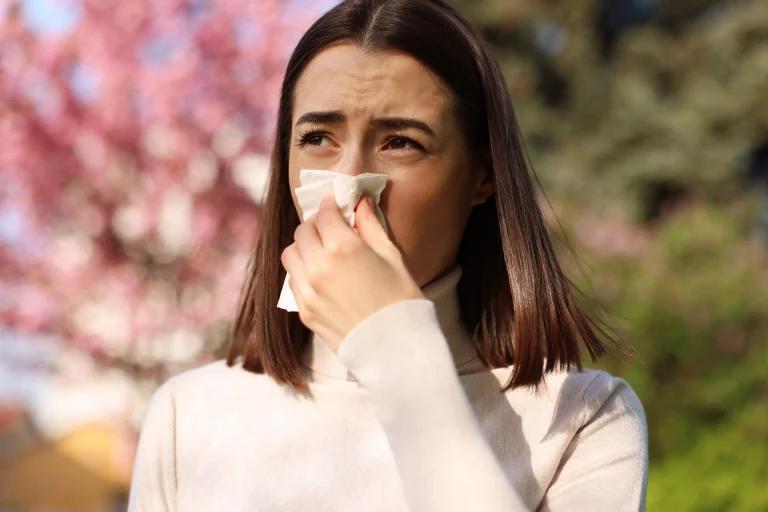Sinus infection (sinusitis or rhinosinusitis) is a common condition characterised by inflammation and swelling of the sinuses. It is usually caused by an infection, such as a cold or flu. Sinusitis can be uncomfortable and disruptive, but with proper understanding and treatment, it can be managed effectively. In this comprehensive guide, we will explore the causes, symptoms, and treatment options for sinusitis.
The sinuses and sinusitis
Before delving into the details of sinusitis, let’s first understand the sinuses and their function. The sinuses are small, air-filled cavities located in the facial bones around the nose and eyes. They are lined with a thin layer of tissue that produces mucus to moisten the nasal passages and trap bacteria, dust, and other particles.
Sinusitis occurs when the lining of the sinuses becomes inflamed and swollen, preventing the proper drainage of mucus. This can lead to a buildup of mucus, creating a favourable environment for bacteria, viruses, or fungi to thrive. The resulting infection causes the symptoms associated with sinusitis.
Causes of sinus infection
Sinus infections are commonly triggered by viral infections, such as the common cold or flu. These viruses can cause inflammation in the nasal passages, leading to sinusitis. However, sinus infections can also be caused by bacterial or fungal infections, as well as allergies. Let’s explore these causes in more detail:
Viral infections
The majority of sinus infections are caused by viral infections, such as the rhinovirus, which is responsible for the common cold. When a virus infects the nasal passages, it can lead to inflammation and swelling of the sinuses, resulting in sinusitis.
Bacterial infections
While viral infections are the primary cause of sinusitis, they can sometimes progress to bacterial infections. Bacteria, such as Streptococcus pneumoniae, Haemophilus influenzae, or Moraxella catarrhalis, can infect the sinuses and cause more severe symptoms.
Fungal infections
Fungal sinusitis is relatively rare but can occur in individuals with weakened immune systems or those with certain medical conditions, such as cystic fibrosis. Fungal infections are typically more severe and may require specialized treatment.
Allergies
Allergies can also contribute to the development of sinusitis. When exposed to allergens, such as pollen, dust mites, or pet dander, the body’s immune system reacts by producing histamines. These histamines can cause inflammation in the nasal passages, leading to sinusitis.
Pollutants
Tobacco smoke, secondhand smoke, chemicals and other pollutants can irritate the lungs and nasal passages inside the nose.
Understanding the different types of sinusitis: causes and types
Sinusitis can be classified into different types based on the duration and cause of the infection. The most common types include acute sinusitis, subacute sinusitis, chronic sinusitis, and recurrent acute sinusitis.
Acute sinusitis
Acute sinusitis is characterised by symptoms that last less than four weeks and are often caused by viral infections, such as the common cold. Symptoms may include nasal congestion, facial pain/pressure, a reduced sense of smell and nasal discharge. In most cases, acute sinusitis resolves on its own without the need for antibiotics.
Subacute sinusitis
Subacute sinusitis refers to symptoms that last between 4 to 12 weeks. It is often a continuation of an acute sinus infection or a prolonged recovery period. The symptoms and treatment options for subacute sinusitis are similar to those of acute sinusitis.
Chronic sinusitis
Chronic sinusitis is defined as symptoms that persist for at least 12 weeks. Bacterial infections are commonly associated with chronic sinusitis, and the condition may require a more targeted treatment approach, including antibiotics. Nasal polyps (growths), allergies, and structural issues (deviated septum which occurs when the wall of tissue that runs between the left and right nostrils is uneven) within the sinuses can contribute to the development of chronic sinusitis.
Recurrent acute sinusitis
Recurrent acute sinusitis is characterised by multiple episodes of acute sinusitis within a year, with each episode lasting less than two weeks. This condition may require further evaluation to identify underlying causes or contributing factors.
Symptoms of sinusitis
The symptoms of sinusitis can vary depending on the severity and duration of the infection. Common symptoms include:
- Pain, swelling, and tenderness around the cheeks, eyes, or forehead
- A stuffy nose
- A runny nose
- Reduced sense of smell
- Postnasal drip (mucus in your throat)
- Green or yellow mucus from the nose
- Headache
- Toothache
- Bad breath
- Sore throat
- Cough
- Feeling of pressure in the ears
It’s important to note that sinus infections can affect both adults and children. In young children, sinusitis may manifest as irritability, difficulty feeding, and breathing through the mouth.
Diagnosing sinus infection
If you suspect you have a sinus infection, it’s essential to consult a healthcare professional for an accurate diagnosis. They will evaluate your symptoms and medical history and may perform a physical examination. In some cases, additional tests may be necessary, such as:
Nasal endoscopy
A nasal endoscopy involves using a small, lighted instrument called an endoscope to examine the nasal passages and sinuses. This procedure allows the healthcare professional to assess the extent of inflammation and any blockages.
Imaging
In certain situations, imaging tests like a computed tomography scan (CT scan) may be recommended to provide a detailed view of the sinuses. These scans can help identify structural abnormalities or complications associated with sinusitis.
Allergy testing
If allergies are suspected to be contributing to sinusitis, allergy testing may be conducted. This can help identify specific allergens that trigger sinus inflammation and guide appropriate treatment strategies.
Treatment options for sinusitis
The medical treatment for sinusitis depends on the underlying cause and the severity of symptoms. In many cases, sinus infections resolve on their own without the need for medical intervention. However, if symptoms persist or worsen, various treatment options are available. These include:
Self-Care measures
For mild cases of sinusitis, self-care measures can often alleviate symptoms and promote healing. These measures include:
- Getting plenty of rest to allow the body to recover
- Staying hydrated by drinking plenty of fluids
- Taking over-the-counter pain relievers, such as paracetamol or ibuprofen, to alleviate pain and reduce inflammation
- Avoiding allergens or irritants that may trigger sinusitis
- Practising good nasal hygiene by cleaning the nose with a saltwater solution
Medications
In some cases, healthcare professionals may prescribe medications to manage sinusitis symptoms or target the underlying cause. These medications may include:
- Nasal decongestants: Nasal sprays or drops containing decongestants can help alleviate nasal congestion by narrowing blood vessels in the nasal passages
- Corticosteroid nasal sprays: These steroid sprays help reduce inflammation in the nasal passages and sinuses, allowing for better drainage
- Antihistamines: If allergies contribute to sinusitis, antihistamines may be prescribed to reduce allergic reactions and relieve symptoms
- Antibiotics: In cases where a bacterial infection is present or suspected, antibiotics may be prescribed. However, antibiotics are not typically recommended for viral sinus infections
Surgical interventions
In rare cases where sinusitis is severe, recurrent, or associated with structural abnormalities, surgical interventions may be considered. Functional endoscopic sinus surgery (FESS) is a common procedure that aims to improve sinus drainage and alleviate symptoms. During FESS, the surgeon uses specialized instruments to remove blockages, such as nasal polyps, or widen the sinus passages.
Preventing sinus infections
While it may not be possible to prevent all cases of sinusitis, there are steps you can take to reduce the risk of developing a sinus infection. These preventive measures include:
- Practising good hand hygiene to minimise the spread of viruses and bacteria
- Avoiding close contact with individuals who have respiratory infections
- Maintaining a healthy immune system through a balanced diet, regular exercise, and adequate rest
- Managing allergies effectively by avoiding triggers and seeking appropriate treatment
- Keeping the nasal passages moist by using saline nasal sprays or rinses
- Quitting smoking or avoiding exposure to secondhand smoke
- Use a humidifier. If the air in your home is dry, adding moisture to the air with a humidifier may help prevent sinusitis
When to seek medical attention
In most cases, sinus infections will resolve on their own or with conservative treatment. However, it’s important to seek medical attention if:
- You are experiencing severe symptoms, such as intense facial pain or high fever
- Your symptoms worsen or persist for more than three weeks
- You have recurrent sinus infections
- You have underlying medical conditions that may complicate sinusitis
Your healthcare provider will assess your condition and recommend appropriate treatment options based on your symptoms and medical history.
Conclusion
Sinusitis, or a sinus infection, can be a disruptive and uncomfortable condition. Understanding the causes, symptoms, and treatment options is essential for effective management. By practising good nasal hygiene, seeking timely medical attention when needed, and taking preventive measures, you can minimise the impact of sinus infections on your overall well-being. Remember, each case of sinusitis is unique, and tailored treatment approaches should be discussed with a healthcare professional.
Sources
- Sinus Infection (Sinusitis): Causes, Symptoms & Treatment
- Chronic sinusitis – Symptoms and causes – Mayo Clinic
- Unlocking the mystery of your sinuses – Mayo Clinic Health System
- Sinus Infection (Sinusitis) – Antibiotic Use – CDC
- Sinusitis (sinus infection) – NHS
Medical Disclaimer
NowPatient has taken all reasonable steps to ensure that all material is factually accurate, complete, and current. However, the knowledge and experience of a qualified healthcare professional should always be sought after instead of using the information on this page. Before taking any drug, you should always speak to your doctor or another qualified healthcare provider.
The information provided here about medications is subject to change and is not meant to include all uses, precautions, warnings, directions, drug interactions, allergic reactions, or negative effects. The absence of warnings or other information for a particular medication does not imply that the medication or medication combination is appropriate for all patients or for all possible purposes.










